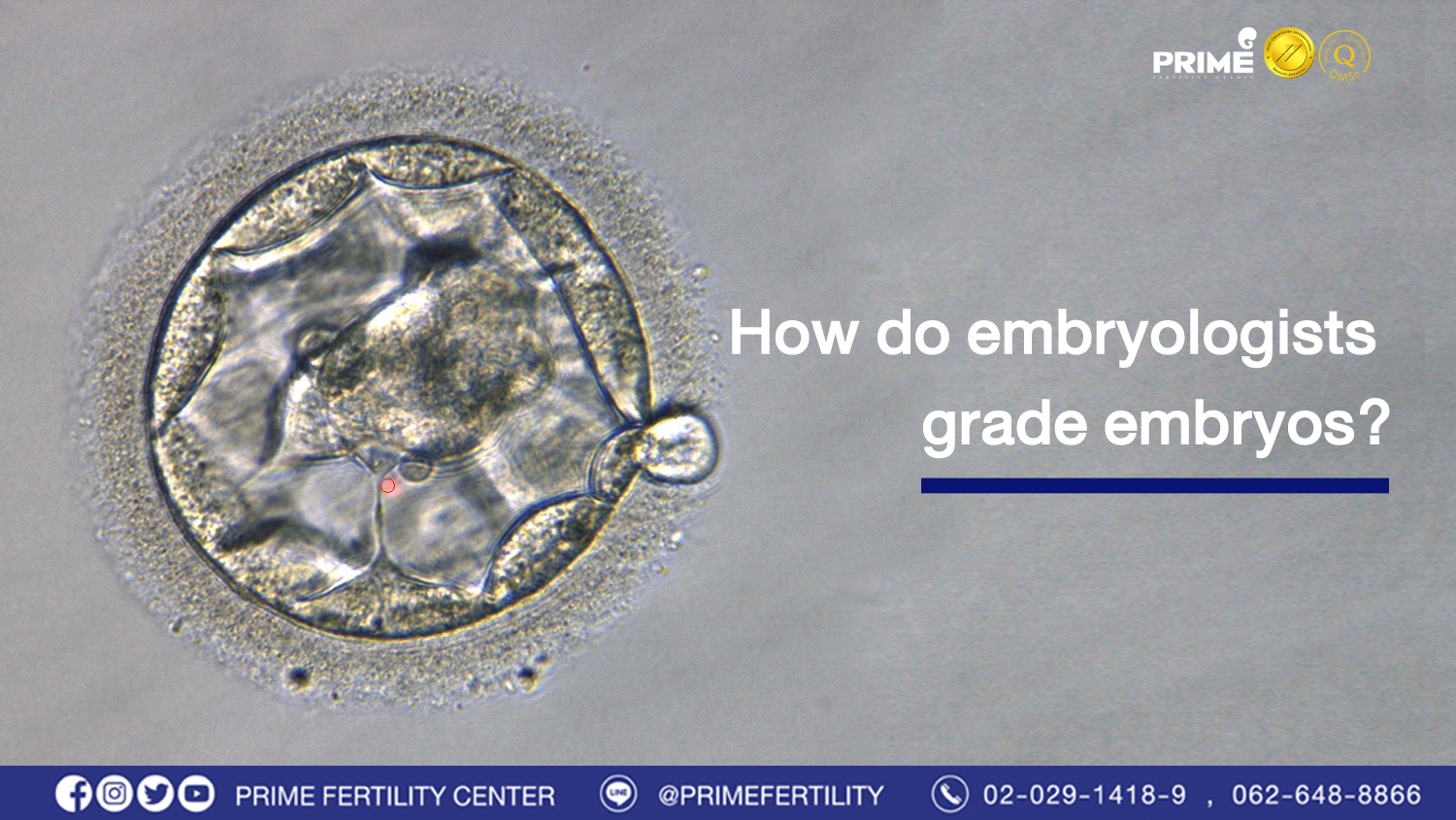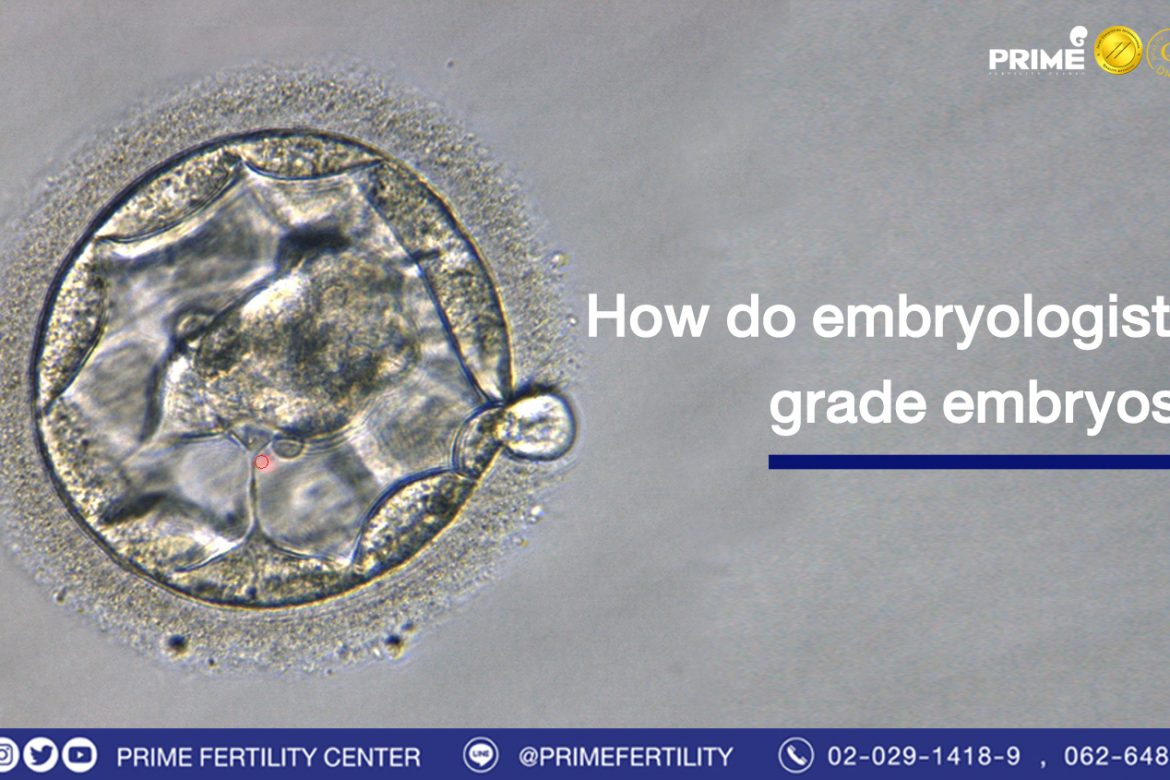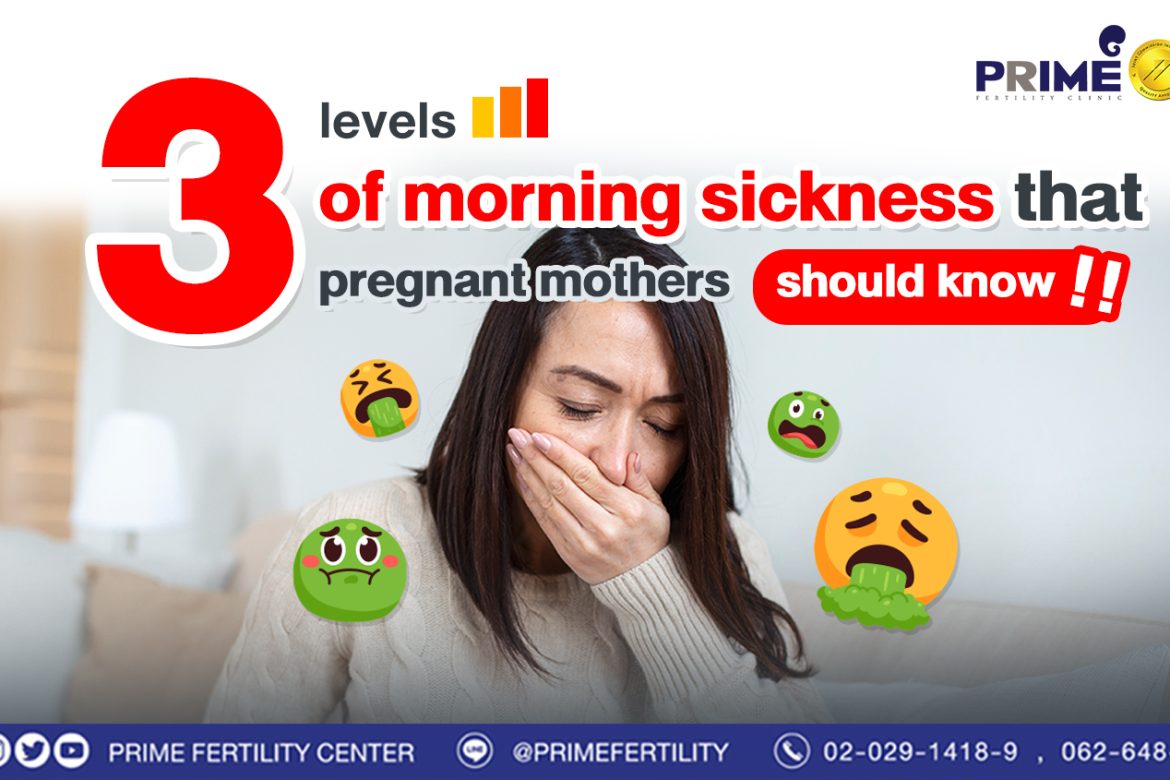
The success of ICSI treatment depends on the quality of embryos. In medical procedure, embryo grading is used to evaluate and select the healthy embryos with the best quality before embryo transfer.
At Prime Fertility Clinic, our embryologists perform embryo grading. The fertility specialists assess embryos during 2 stages of embryo development which are Cleavage stage and Blastocyst stage as following details:
Cleavage stage
The embryo assessment of Prime Fertility Clinic refers to an international criteria of Istanbul Consensus Scoring System. Considering cell morphology and symmetry, embryos are simply divided in 3 groups.
- Grade 1 (Good quality): The embryos that consist of blastomeres or an increased number of cells from cell division. Each cell has a nice round shape, equal size, no fragmentation (small fragments or broken pieces of abnormal cells of embryo). However, fragmentation less than 10% will be accepted. Embryos in this group are more likely to reach Blastocyst stage.
- Grade 2 (Fair quality): The embryos that consist of a fair quality of blastomeres or slightly different cell sizes from cell division. 10-25% Fragmentation will be found in this group.
- Grade 3 (Poor quality): Blastomeres or cell division appears in various cell sizes. Showing more than 25% fragmentation.
Blastocyst stage
The stage that an embryo reaches 5-6 days after fertilization. Embryo grading at Prime Fertility Clinic refers to the international scoring system for evaluating blastocysts proposed by Gardner and Schoolcraft (1999). Blastocyst grading is defined by the appearance of inner cell mass and trophectoderm which are rated either A, B, C together with 6 degrees of expansion in Blastocyst stage.
- Early Blastocyst (1)
- Blastocyst (2)
- Full Blastocyst (3)
- Expanded Blastocyst (4)
- Hatching Blastocyst (5)
- Hatched Blastocyst (6)
After grading, embryologists will thoroughly record the information of each embryo. The result from 3 parts will be evaluated together in order to identify the best embryo to transfer.



